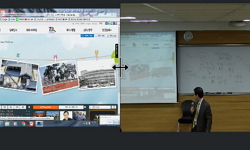This paper explores the impact of minimum wage standards on unemployment rates in nine cities in China Pearl River Delta based on data from the China Urban Statistical Yearbook and the Bureau of Human Resources and Social Security's website from 2000 ...
http://chineseinput.net/에서 pinyin(병음)방식으로 중국어를 변환할 수 있습니다.
변환된 중국어를 복사하여 사용하시면 됩니다.
- 中文 을 입력하시려면 zhongwen을 입력하시고 space를누르시면됩니다.
- 北京 을 입력하시려면 beijing을 입력하시고 space를 누르시면 됩니다.

최저 임금이 도시 실업률에 미치는 영향 - 중국 주 삼각지역을 중심으로 - = The Impact of the Minimum Wage on the Urban Unemployment Rate - Take the China Pearl River Delta as an Example -
한글로보기https://www.riss.kr/link?id=A108293563
- 저자
- 발행기관
- 학술지명
- 권호사항
-
발행연도
2022
-
작성언어
Korean
- 주제어
-
등재정보
KCI등재
-
자료형태
학술저널
-
수록면
583-596(14쪽)
- 제공처
-
0
상세조회 -
0
다운로드
부가정보
다국어 초록 (Multilingual Abstract)
Third, through the systematic GMM and differential GMM robustness tests, this paper concludes that the minimum wage is negatively related to the urban unemployment rate. By testing the impact mechanism, the minimum wage’s increase reduces the urban unemployment rate through the urban innovation effect and cost effect.
This paper explores the impact of minimum wage standards on unemployment rates in nine cities in China Pearl River Delta based on data from the China Urban Statistical Yearbook and the Bureau of Human Resources and Social Security's website from 2000 to 2020. The study shows that first, minimum wage's increase reduces urban unemployment rate. Second, from the perspective of heterogeneity, raising the minimum wage decreases state-owned collective employment rate and increases private sector employment rate; raising the minimum wage decreases urban unemployment rate in different economic development level cities; after the economic crisis in 2008, raising the minimum wage decreases the urban unemployment rate.
Third, through the systematic GMM and differential GMM robustness tests, this paper concludes that the minimum wage is negatively related to the urban unemployment rate. By testing the impact mechanism, the minimum wage’s increase reduces the urban unemployment rate through the urban innovation effect and cost effect.
동일학술지(권/호) 다른 논문
-
- 한국문화융합학회
- 이영환
- 2022
- KCI등재
-
코로나 팬데믹에 처한 학생들의 학교적응 목적의 무용동작 치료에 대한 교사 인식의 현상학적 연구
- 한국문화융합학회
- 유명선
- 2022
- KCI등재
-
네트워크 이론 기반 국내학회 네일연구 트랜드에 관한 연구
- 한국문화융합학회
- 박소현
- 2022
- KCI등재
-
난소절제 암컷 비만 쥐에서 지방대사와 열 발생 관련 유전자 조절에 대한 수영운동의 영향
- 한국문화융합학회
- 정선효
- 2022
- KCI등재




 DBpia
DBpia






